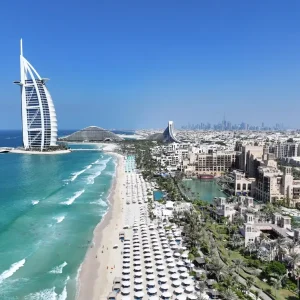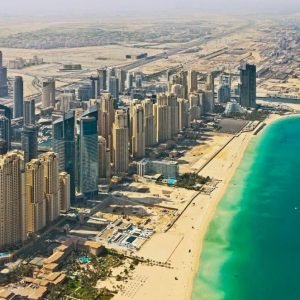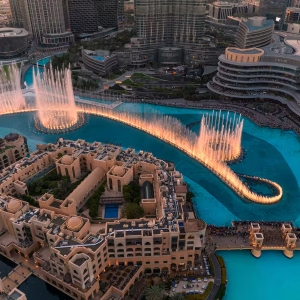In a bold move to protect lives and property, UAE authorities have stepped up efforts to enforce cooking gas safety regulations across the country, uncovering thousands of violations during large-scale inspections. Over 11,000 facilities, including residential buildings, restaurants, labor accommodations, and commercial kitchens, were inspected as part of a sweeping initiative to clamp down on gas misuse and promote safe practices.
The action is part of a broader nationwide campaign that highlights the UAE’s commitment to creating a culture of safety—turning awareness into action, and violations into victories.
Safety First: A Nationwide Wake-Up Call
For years, cooking gas violations—ranging from illegal cylinders in residential buildings to poorly maintained central gas systems—have quietly put thousands at risk. Recent incidents and growing awareness among residents have pushed the authorities to act decisively.

The Abu Dhabi Department of Energy, in collaboration with municipal bodies and civil defense authorities, has spearheaded a proactive inspection drive under the banner of “Your Safety Is Our Priority.” Similar efforts have also taken root in Dubai, Sharjah, and other emirates, bringing a unified approach to gas safety across the nation.
The inspection campaign covered a wide range of facilities—from small family-run restaurants to large commercial kitchens, from single apartment units to sprawling labor accommodations. The findings were eye-opening.

What Inspectors Found: A Snapshot of Violations

Authorities reported numerous types of violations during the inspection campaign. Common issues included:
- Use of uncertified gas hoses and outdated regulators
- Lack of periodic maintenance of central gas systems
- Improper or unsafe cylinder storage in residential units
- Tampering with leak detectors or not installing them at all
- Unlicensed suppliers delivering or installing gas units
These violations were not limited to small eateries or older buildings. Even newer, high-rise complexes were found with non-compliant installations. Some facilities were using gas lines without proper permits, posing a risk not only to occupants but also to entire communities.
What makes these findings particularly concerning is that many of these issues could have been avoided with regular checks and adherence to basic safety practices.
Action Taken: Quick Moves, Lasting Impact
Authorities didn’t stop at just issuing fines. They took decisive corrective actions to neutralize threats and prevent future incidents.
In many facilities, central gas systems were shut down and replaced. In others, faulty installations were removed, and certified gas equipment was installed. Key steps included:
- Installing over 10,000 gas leak detectors in both commercial and residential spaces
- Replacing over 450 outdated central gas tanks and panels
- Removing duplicate or illegal gas systems that had bypassed official inspection
- Enforcing mandatory safety certificates, maintenance contracts, and NOCs
These swift interventions helped not just correct violations but also educate property managers and residents about their responsibilities.
Repeat violators were hit with heavier penalties. Some businesses even faced temporary suspension or were given strict deadlines to comply with new regulations. Officials clarified that safety would no longer be compromised for convenience.
Public Awareness: Turning Knowledge into Action
A key strength of the campaign lies in its public-facing message. Awareness programs accompanied the inspections, educating landlords, restaurant owners, domestic workers, and even tenants about the safe handling of cooking gas.
Government representatives held community sessions, distributed pamphlets, and launched a media campaign to spread essential safety tips, such as:
- Use certified hoses and replace them every two years
- Sign contracts only with licensed gas suppliers
- Conduct simple soapy water tests to check for leaks
- Keep cylinders in open, ventilated areas
- Know how to shut off the supply in an emergency
Many residents who had never thought twice about their gas supply were now actively checking equipment and asking landlords for maintenance records.
This is not just about checking boxes—it’s about changing attitudes.
Who Benefits and Why It Matters
The benefits of this crackdown are far-reaching.
For residents, it means peace of mind. Knowing your apartment or villa has been inspected and approved gives families confidence that their loved ones are safe.
For restaurant owners, the move avoids future losses. Gas leaks and accidents can lead to fires, property damage, or worse—loss of life and business. By complying with regulations now, businesses avoid shutdowns or lawsuits later.
For authorities, it offers an organized framework to build a safer future. The campaign is also a model for cross-department collaboration, involving civil defense, energy departments, municipalities, and private stakeholders.
This isn’t just a gas safety campaign—it’s part of a national effort to build a culture of accountability, one that mirrors the UAE’s broader Vision 2031 goals.

Challenges and the Road Ahead
Despite these gains, officials acknowledge that challenges remain. Not every landlord is cooperative, and not every supplier follows the rules. Residents in older buildings or low-income areas may face delays in system upgrades.
Another issue is the lack of awareness among transient populations—migrant workers, temporary staff, or tenants unfamiliar with UAE safety norms.
To tackle this, authorities are planning:
- A central digital gas safety registry, where residents can verify their building’s status
- Expanding smart gas detection systems using IoT technology
- Introducing new laws that link safety compliance to utility and rental agreements
- Providing financial support schemes or discounts for compliant property upgrades
By integrating these future steps, the UAE hopes not just to enforce safety but to make it second nature.
Final Thought: From Risk to Resilience
The UAE’s decisive action on cooking gas violations sends a strong message: public safety comes first. With over 11,000 inspections conducted, the authorities are not waiting for tragedies to trigger reform—they’re preventing them before they happen.
Every leak prevented, every outdated hose replaced, and every detector installed adds up to a safer country. And as more people become aware, report issues, and demand accountability, the results are becoming visible.
In homes and restaurants across the Emirates, safety is no longer assumed—it’s ensured.
Do follow UAE Stories on Instagram
Read More: NMC Royal Hospital DIP Revolutioni0sing Breast Cancer Surgery in the UAE with Sentimag System












